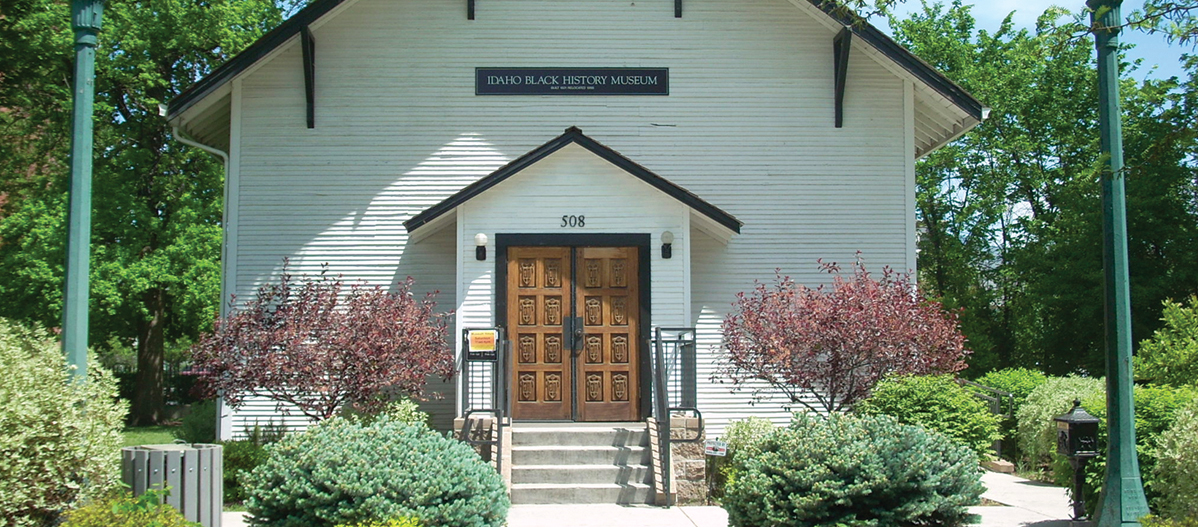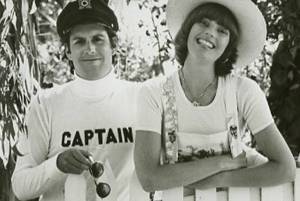By MARY ANN REUTER
The oldest museum of its kind in the Pacific Northwest, the Idaho Black History Museum has stood the test of time. Since its grand opening in Boise’s Julia Davis Park in 1999, the museum’s exhibits have recounted the state’s black history from the early 1800s to modern times.
From a slave named York who traveled with the Lewis and Clark expedition to the civil rights protests when the then-governor of Idaho refused to lower the flag for Dr. Martin Luther King, Jr.’s assassination, the stories of black families in Boise, Pocatello, and beyond are told in a permanent display called “The Invisible Idahoan: 200 Years of Blacks in Idaho.”
The content for these panels was created with the help of Mamie Oliver, Boise State University’s first black professor and author of Idaho Ebony: The Afro-American Presence in Idaho State History (1990).
The building’s history goes back much further though. Originally constructed in 1921 to house the St. Paul Baptist Church on Broadway Avenue, the traditional wooden church with stained glass windows was moved to its new park location in 1998 and renovated to serve as a museum. In 1982, the modest chapel was included on the National Registry of Historic Places.
The church’s founder was the Rev. William B. Hardy, who formed a congregation in 1908. Hardy was the great, great grandfather of the museum’s current executive director, Phillip Thompson. And Thompson’s mother is Cherie Buckner-Webb, the museum’s founder—also a jazz singer, motivational speaker, and fifth-generation Idahoan—and the first black American elected to the Idaho State Legislature in 2010.
Their family history is depicted in many of the display panels at the museum. Dorothy Buckner, Cherie’s mother, helped push through state civil rights legislation in 1961, three years before the federal government did in 1964.
Her father, football athlete Aurelius “Buck” Buckner, was one of the first black students to attend Boise Junior College, now Boise State University, in the mid-1940s.
In eastern Idaho, Pocatello’s first black mayor, Thomas “Les” Purce, was elected to the city council in 1973 before leading the city as mayor. Later the president of Evergreen State College in Olympia, Wash., he is the grandson of one of Idaho’s most respected rodeo champions.
In 1930, Tracy Thompson, a homesteader and railroad worker, was killed in Bozeman, Mont., in a suspicious bronco-bucking “accident” caused by a severed saddle strap.
Idaho’s history is marked by many “invisible” black politicians, athletes, educators, attorneys, musicians, even beauty queens. The Idaho Black History Museum brings their stories to life and also provides community outreach and educational programs, such as lectures, films, workshops, and performances. Thompson says social justice is a theme that runs through the history of black Americans in Idaho, as elsewhere. He’s planning a new exhibit on Justice Reform, currently under development.
The museum now houses an impressive art exhibit. Along with a fierce, yet soulful portrait of Martin Luther King, Jr. in clergyman robes, a stunning art piece called “From Slave to President” was donated by Idaho artist Pablo Rodriguez, Jr. in 2009. The larger-than-life mural of significant African Americans from Frederick Douglas to President Barack Obama includes an inset painting of the slave ships that carried the first Africans to America from the early 1600s to the middle 1800s.
Like the pioneers depicted within its walls, the Idaho Black History Museum has had challenges to overcome, like the funding shortfalls in 2007 that resulted in laying off staff and cutting back visitor hours. Yet the center persevered, and as Buckner-Webb said at the time, “We are here for the long haul, breaking down barriers, sharing historical information, and honoring those that came before us. Blacks leave a legacy to our country and our community, and we want to share that.” ISI









